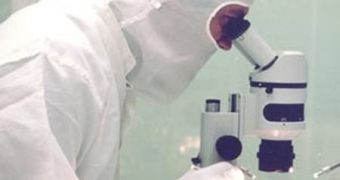Since conventional methods of treating cancers and heart diseases seem to have reached their peak capabilities, researchers are currently focusing their attention on designing custom proteins, which are able to bind with disease-causing molecules inside the body and annihilate them. Now, thanks to University of Leicester Department of Cardiovascular Sciences experts, that goal was brought one step closer. Their research may find applications in things like strokes, vascular inflammations, regenerative medicine, blood vessel formation, as well as in tissue engineering.
“There are millions of different proteins that are involved in carrying out numerous functions in the human body. Over time each protein has evolved to optimize its function. Disease could result if any of these fail to perform efficiently. By generating designer proteins in test tubes, we can produce molecules that have specific actions to control processes in the body. These proteins can be used to make drugs as a treatment for heart disease and cancer,” Shikha Sharma, a researcher in Dr. Nick Brindle's laboratory, at the Department of Cardiovascular Sciences, says.
“Whilst most drugs in current use are synthetic, these designer molecules are developed from natural proteins and are likely to have fewer side effects. Proteins perform a well defined but complex set of functions in the body and protein therapeutic drugs can perform better when compared to some synthetic small molecule drugs that may have unwanted interactions within the body,” the expert adds.
“Current methods to generate protein therapeutic are cumbersome and time consuming. At the University of Leicester, we have developed a novel method to revolutionize the way in which we produce these designer protein drugs. In principle, this method mimics natural evolution to make new proteins, but over a shorter timescale. Instead of taking millions of years, we can create new proteins in just a few weeks,” the expert concludes.
Details of how the researcher's molecules can rapidly bind to others inside diseased areas will be presented at the University of Leicester on June 25th. The find could also be used in the field of agriculture, to create molecules that prevent plants from taking up harmful chemicals from the ground, thus ensuring they grow better and pose less of a threat to humans.

 14 DAY TRIAL //
14 DAY TRIAL //